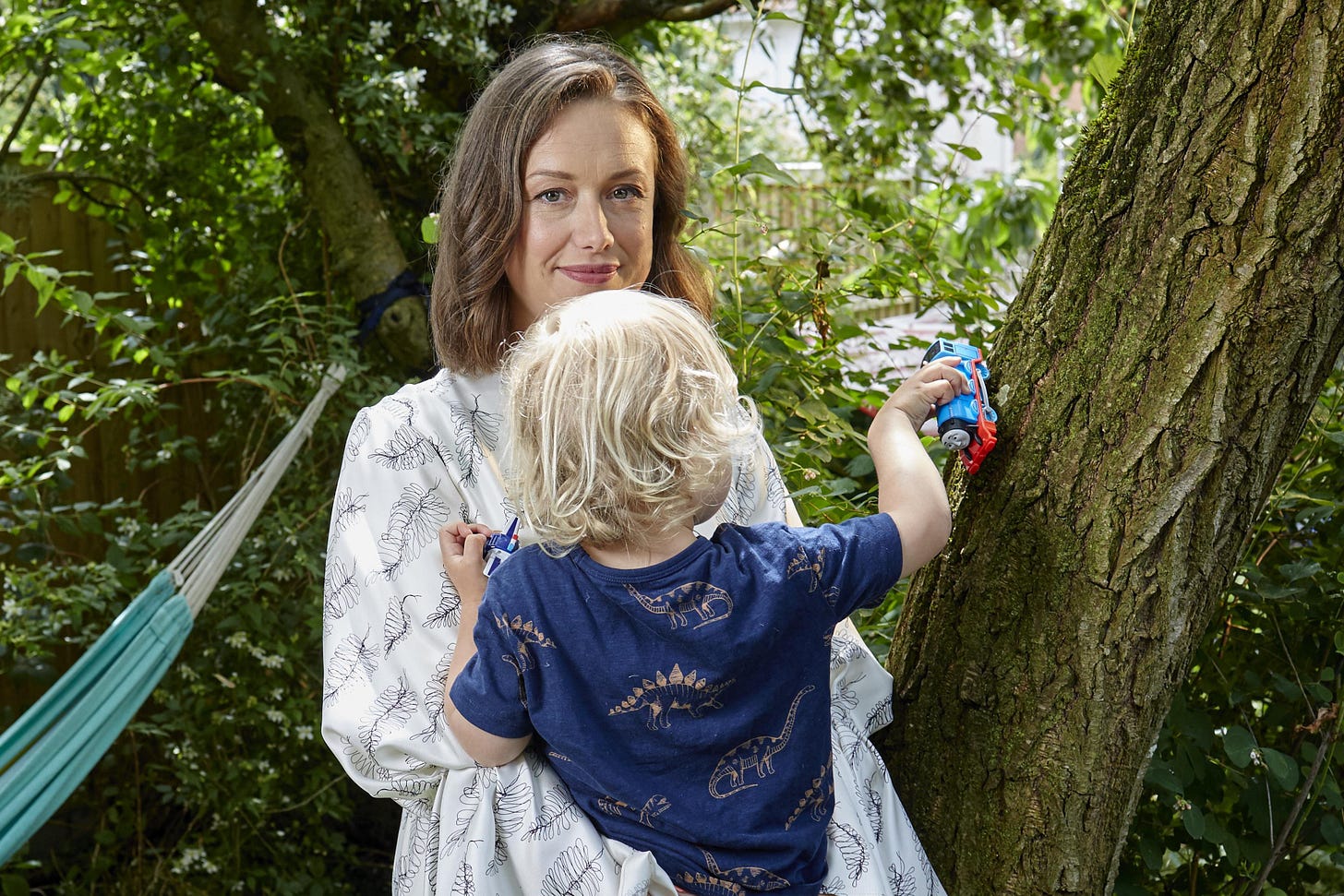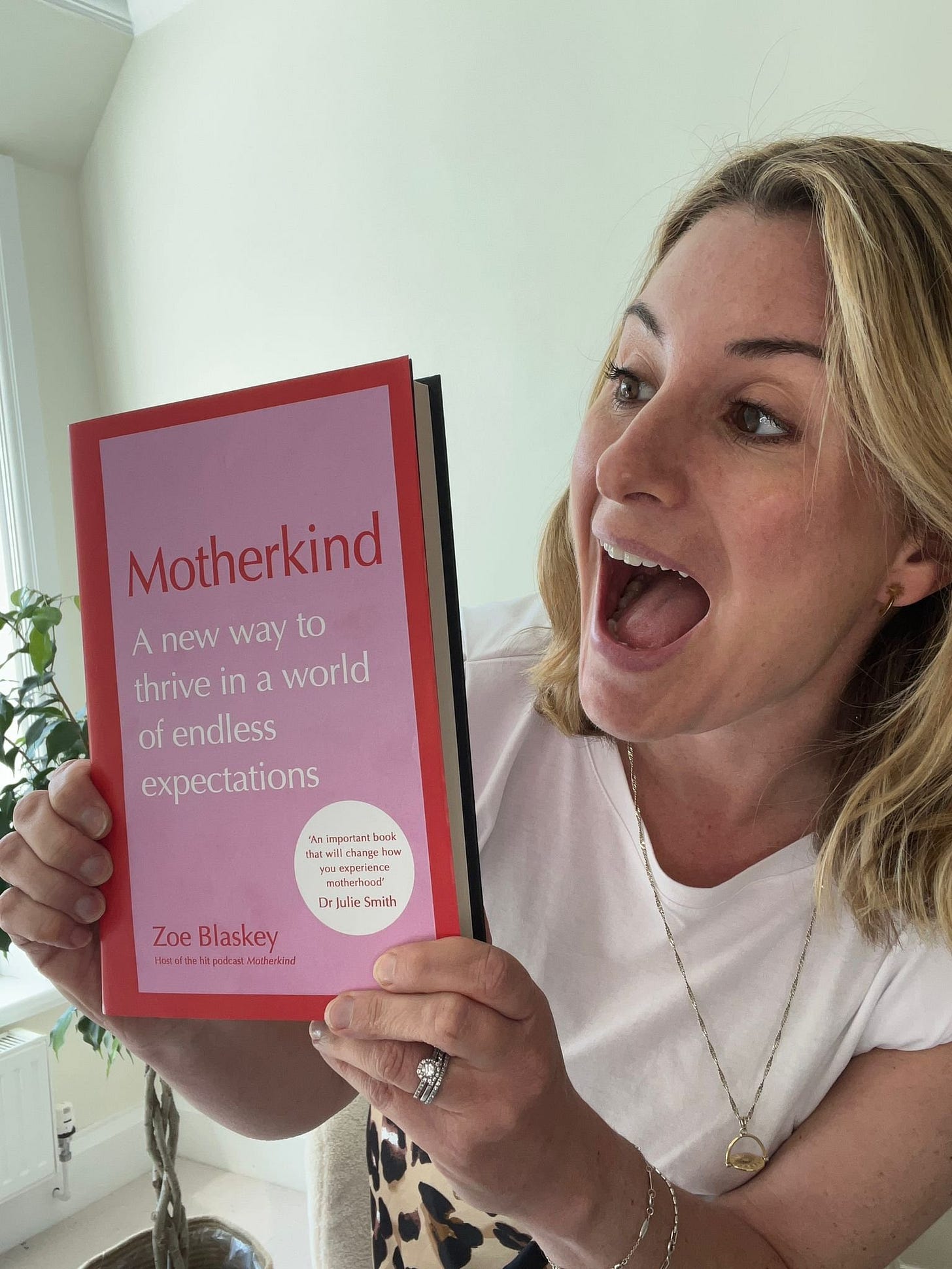You’ve heard of adolescence. You’ve heard of menopause. But what about 'matrescence'? My computer doesn’t even recognise it—there’s a smug little red squiggle under it as I type. And yet, if you’ve ever felt like motherhood bulldozed your sense of self and forced you to rebuild it from the ground up then, congrats, you’ve lived it.
Coined by anthropologist Dana Raphael in the 1970s (like many things that might unsteady the status quo and help women achieve parity, it’s been hiding in plain sight for decades), matrescence describes the seismic shift a woman undergoes when she becomes a mother. Think puberty, but instead of acne and bad eyeliner, you get sleep deprivation, emotional whiplash, and an internet history full of baby sleep hacks. It’s a full-body, full-brain rewiring, but for some reason, nobody thought to mention it when they were dishing out pregnancy advice.
In recent years, writers and cultural figures such as Lucy Jones and Zoe Blaskey have (praise be) been dragging this conversation into the mainstream.
Lucy Jones, in her book Matrescence: On the Metamorphosis of Pregnancy, Childbirth and Motherhood, takes a deep dive into the science behind matrescence, blending personal experience with hard research. She explores how the maternal brain restructures itself—yes, your brain physically changes—affecting everything from memory to emotional responses. Her book peels back the layers of mythology around motherhood, exposing how little we’ve been told about the way our bodies and minds actually shift.
Jones’s work is both radical and deeply necessary, challenging the tired tropes of maternal instinct and sacrifice. She dissects how Western society has reduced motherhood to an individual pursuit, stripping away the village-like support systems that once cushioned this transition. Drawing from anthropology, neurology, and her own experiences, Jones argues that the seismic shifts of matrescence deserve the same cultural weight as adolescence or menopause. If you’ve ever felt like your sense of self is in freefall post-birth, Jones’s work doesn’t just validate that—it reframes it as an essential and transformative process.
Inspired by Jones, Zoe Blaskey has taken it one step further and created a space where mothers can share their experiences, fears, and revelations. Through her Motherkind podcast, she offers a platform for women to voice what so many feel but struggle to articulate: “Wait, why did no one tell me this was going to feel like an identity crisis wrapped in a nappy?” Her work is about giving mothers permission to acknowledge the messiness, the contradictions, and the sheer scale of the shift—without the pressure to wrap it all up in a neat and grateful bow.
Blaskey has now expanded on these themes in a new book, which delves into the realities of matrescence, offering a blend of expert interviews, real-life stories, and practical advice. She tackles everything from identity loss to relationship shifts, all with the same reassuring honesty and warmth that has made her podcast such a success.
But for the most part, we’re still sold an image of effortless motherhood: glowing, serene, perfectly put together. The reality, though, is an intellectual and emotional upheaval, and a profound reordering of priorities, values, and identity. You find yourself navigating new intellectual terrain, reassessing everything from personal ambition to the structures of society that suddenly feel oddly mismatched to this new phase of life. You’re simultaneously in awe of your body’s capabilities and unsettled by the unfamiliarity of your own reflection, both physically and psychologically.
An article in last week’s Sunday Times Magazine laid it bare: becoming a parent physically rewires your brain—whether you're a mother, father, or any primary caregiver. And this isn’t just some fleeting adjustment; according to research, the neurological shifts in new parents lead to the restructuring of brain areas linked to emotional regulation, memory, and problem-solving. Parenting doesn’t just change your schedule—it rewires the way you process the world. Neuroscientists have found that grey matter shrinks in certain areas, not as a sign of decline, but as a form of neural fine-tuning that enables parents to become hyper-responsive to their child’s needs.
The author acknowledges the parallels between matrescence and adolescence, another period of intense brain reorganisation. The heightened emotional responses—i.e you're crying harder than ever at the JL Christmas advert—stem from an increased sensitivity to distress cues, meaning parents become biologically primed to respond swiftly to their child’s wellbeing.
And this isn’t just limited to those who give birth—fathers and non-birthing parents undergo similar structural changes (though, notably, not to the same extent as mothers) particularly in regions associated with empathy and social cognition. These changes aren’t fleeting either—they represent a fundamental restructuring of the brain, an upgrade that enables caregivers to anticipate and respond to their child’s needs with heightened intuition.
The New York Times published an article earlier this year that went viral after highlighting how neurological adaptations enable parents to anticipate their child’s needs even before they arise, making ‘parental instinct’ less of an abstract notion and more of a scientifically measurable shift. The research not only confirms what many parents instinctively feel but also challenges outdated narratives that dismiss the cognitive and emotional labour of caregiving as ‘just part of the job,’ when in reality, it is a biological transformation that fundamentally reshapes the brain’s architecture. In reality, becoming a parent is a profound neurological transformation—one that deserves recognition and, crucially, better structural support.
Matrescence isn’t just about hormones—it’s about identity, ambition, relationships, selfhood. It’s about the fact that you’re expected to give birth and remain exactly the same, when every fibre of your being has shifted.
So why aren't more people talking about it? Why, in an age of self-awareness and oversharing, are mothers still expected to “just get on with it”? As with so many ideas that shape women's lives, why is there still so little known about the subject?
And here’s the thing: when we name it, we take back the narrative. We stop blaming ourselves for not ‘bouncing back’ quickly enough (ew), for struggling to just get through the day, for feeling simultaneously immensely grateful and a little trapped. We start to recognise that this transformation is real, profound, and entirely necessary if we are to flourish in our new role as mother.
Matrescence isn’t a breakdown—it’s a breakthrough. And the more we talk about it—the more we recognise and embrace its inevitability and beauty—the less alone we feel and the more empowered we become.
Amelia x








